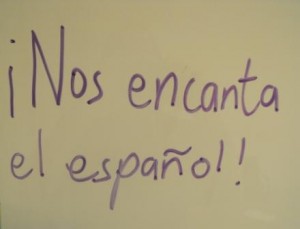 We had a large interpretation event for a group coming from all over Latin America. This brings up interest in the discussion about the varieties of Spanish.
We had a large interpretation event for a group coming from all over Latin America. This brings up interest in the discussion about the varieties of Spanish.
Is a pato a duck? Or is it a Puerto Rican derogatory term for a gay man? Or is it a bedpan? In Puebla, Mexico, the word is used to mean bedpan, while in the Baja Peninsula, silleta means bedpan. No matter how you use any of these words, they give you a glimpse into the diversity that is the Spanish language.
Spanish is the native language of over 300 million people worldwide, making it the second-most widely spoken language in the world. It is the official language of twenty-one countries, and practically each one has its own version of the language.
There is US Spanish, Mexican Spanish, Latin American Spanish, Caribbean Spanish, and European Spanish. European Spanish is the most basic form of the language. Caribbean, Mexican and Latin American Spanish are essentially mixtures of the original language with indigenous words, and people often drop final S and intervocalic D in some of the countries. US Spanish is more influenced by US English, and has led to informal versions of Spanish like Spanglish and Tex-Mex.
Spanish is of course a Romance Language, meaning that it is based in Latin. Still, it has acquired words from other language groups. Arabic gave the language aceite (oil) and Frankish gave the language guante (glove). Numerous words of course entered the language from American Indian languages: huarache (slipper) and aguacate (avocado) are examples. More recently, English has contributed words like modem and Internet to Spanish.
It should come as no surprise that certain letters have different pronunciations in different countries. In Spain, LL is pronounced as L followed by Y; in Mexico it is simply pronounced as Y, and in Argentina it is pronounced ZH. Another example is the letters Z and C: Z and C preceding E or I are lisped in Spain; in other countries Z and C preceding E and I are pronounced like S (in Spanish, this is called seseo). Andalusian explorers influenced the Latin American pronunciations of the language.
Spanish, like other languages, has changed over the centuries, especially as it has travelled around the world. One of the most significant changes that the language has undergone can be seen in the use of the second-person plural. For second-person plural familiar, Spain has the word vosotros, meaning “you all”. However, outside of Spain, this conjugation only appears in common speech in Argentina, Chile, Equatorial Guinea and the Philippines. In most of the Hispanophone world, people use ustedes for second person plural, both for familiar and formal, while vosotros sometimes appears in older writings.
This begs the question: why do certain words have different meanings in different countries? It is possible that the specific mixture of people in a given region creates a new interpretation of a word. As a result, what is a neutral-sounding word in one country might be an impolite word in another country. But even without an answer, that topic is another indicator of the richness of language, and should give anyone a strong appreciation of language.




Leave Your Comments Below